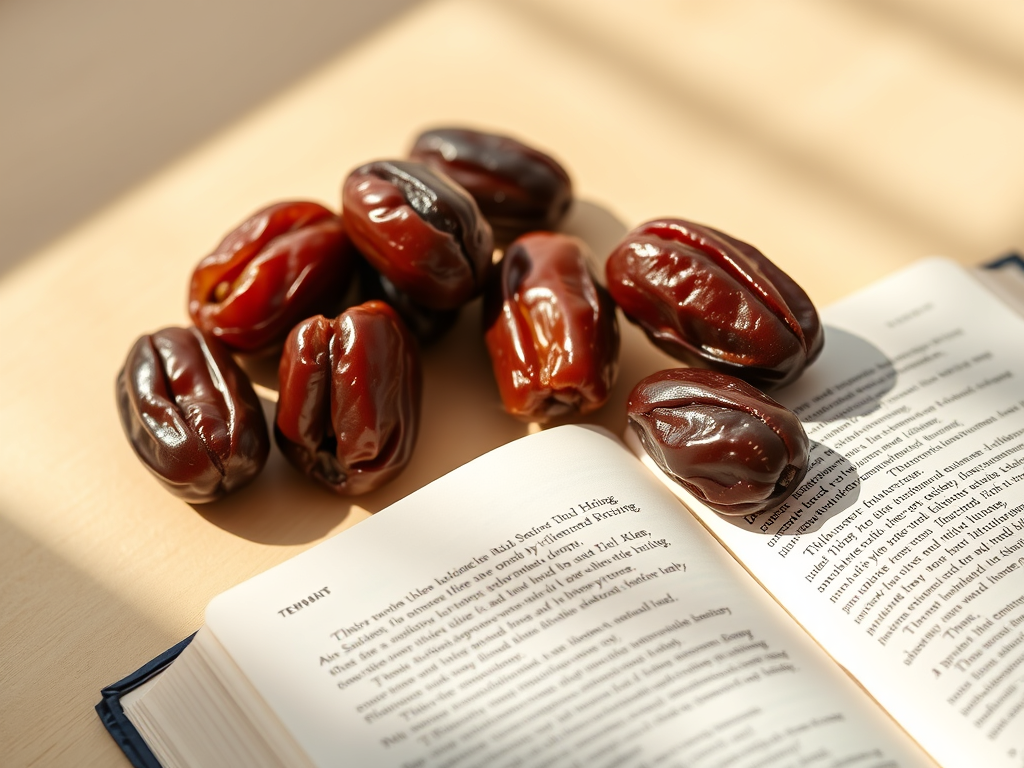12 Biblical Superfoods: Ancient Nutrition for Modern Health

In an era of superfood trends and nutritional breakthroughs, some of the most powerful health foods were documented thousands of years ago in the Bible. These ancient nutritional powerhouses have stood the test of time, with modern science now validating their remarkable health benefits.
1. Pomegranates
Mentioned 6 times in the Bible, most notably in Song of Solomon 4:13: “Your plants are an orchard of pomegranates with choice fruits.”
Recent studies have shown pomegranates contain:
- Punicalagins – powerful antioxidants that are 3x stronger than green tea or red wine
- Anti-inflammatory compounds that reduce joint pain by 62% in clinical trials
- Heart-healthy compounds that reduce arterial plaque by up to 30%
Nutritional Profile (per 100g): Calories: 83 Fiber: 4g Vitamin C: 10.2mg Potassium: 236mg

2. Olive Oil
Referenced 140 times in the Bible, with Exodus 27:20 highlighting its significance: “Command the Israelites to bring you clear oil of pressed olives for the light so that the lamps may be kept burning.”
Modern research reveals:
- Contains over 30 unique polyphenols that fight inflammation
- Reduces heart disease risk by 48% when consumed regularly
- Increases brain function and memory recall by 28% in older adults
Nutritional Profile (per tablespoon): Calories: 120 Healthy Fats: 14g Vitamin E: 1.9mg Vitamin K: 8.1mcg
3. Figs
Mentioned 16 times, notably in 1 Samuel 25:18: “Then Abigail quickly took two hundred loaves of bread… and two hundred cakes of figs.”
Scientific studies show:
- Contains unique fiber that reduces blood sugar spikes by 26%
- Rich in prebiotics that increase beneficial gut bacteria by 81%
- Supports bone health with high calcium absorption rates
Nutritional Profile (per 100g): Calories: 74 Fiber: 3g Calcium: 35mg Potassium: 232mg

4. Dates
Featured 20 times in the Bible, with Deuteronomy 8:8 describing the Promised Land as “a land with wheat and barley, vines and fig trees, pomegranates, olive oil and honey [dates].”
Research highlights:
- Natural labor inducer with 96% success rate in clinical studies
- Reduces blood pressure by 10-15% in hypertensive patients
- Provides sustained energy with a low glycemic impact
Nutritional Profile (per 100g): Calories: 282 Fiber: 8g Potassium: 696mg Magnesium: 54mg
5. Almonds
Referenced 12 times, including Numbers 17:8: “The staff belonging to Aaron… had not only sprouted but had budded, blossomed and produced almonds.”
Clinical studies demonstrate:
- Reduces LDL cholesterol by up to 14% when eaten daily
- Improves sleep quality through natural melatonin content
- Enhances cognitive function and memory in adults
Nutritional Profile (per ounce): Calories: 164 Protein: 6g Fiber: 3.5g Vitamin E: 7.3mg
6. Grapes
Mentioned 43 times, with Psalm 104:14-15 noting: “He makes… wine that gladdens human hearts.”
Modern science reveals:
- Contains resveratrol, which extends cellular lifespan by 24%
- Reduces risk of blood clots by 47% through natural compounds
- Improves exercise endurance by up to 21%
Nutritional Profile (per cup): Calories: 104 Vitamin C: 27% Vitamin K: 28% Antioxidants: High

7. Honey
Appears 61 times, famously in Proverbs 24:13: “Eat honey, my son, for it is good; honey from the comb is sweet to your taste.”
Research shows:
- Natural antibacterial properties effective against 60 species of bacteria
- Heals wounds 43% faster than conventional treatments
- Reduces cough frequency by 56% in clinical trials
Nutritional Profile (per tablespoon): Calories: 64 Antioxidants: High Enzymes: 200+ beneficial compounds Natural Sugars: 17g
9. Fish
Referenced throughout the New Testament, notably in John 21:11: “Simon Peter climbed aboard and dragged the net ashore. It was full of large fish, 153 of them.”
Modern research confirms:
- Omega-3 fatty acids reduce inflammation by 35%
- Regular consumption decreases heart disease risk by 36%
- Improves brain function and reduces cognitive decline by 26%
Nutritional Profile (per 3oz salmon): Calories: 177 Protein: 22g Omega-3s: 1.8g Vitamin D: 447 IU
10. Lentils
Mentioned in Genesis 25:34: “Then Jacob gave Esau some bread and some lentil stew.”
Clinical studies show:
- Reduces post-meal blood sugar spikes by 35%
- Increases iron absorption by 85% compared to other legumes
- Supports weight management through high satiety effect
Nutritional Profile (per cup, cooked): Calories: 230 Protein: 18g Fiber: 15.6g Iron: 6.6mg

11. Garlic
Referenced in Numbers 11:5: “We remember the fish we ate in Egypt at no cost—also the cucumbers, melons, leeks, onions and garlic.”
Modern studies reveal:
- Reduces risk of common cold by 63% when consumed regularly
- Lowers blood pressure in 71% of hypertensive patients
- Contains 39 different antibacterial compounds
Nutritional Profile (per 3 cloves): Calories: 13 Vitamin C: 5% Vitamin B6: 6% Manganese: 7%
12. Butter
Mentioned in Proverbs 30:33: “For as churning cream produces butter, and as twisting the nose produces blood, so stirring up anger produces strife.”
Modern research shows:
- Rich in fat-soluble vitamins A, D, E, and K2
- Contains beneficial fatty acids that support metabolism
- Provides conjugated linoleic acid (CLA) with anti-inflammatory properties
Nutritional Profile (per tablespoon): Calories: 102 Fat: 11.5g Vitamin A: 11% DV Vitamin D: 2% DV
These biblical superfoods have not only sustained generations but continue to prove their worth through modern scientific validation. Their inclusion in both ancient texts and contemporary research demonstrates the timeless wisdom of these nutritional powerhouses.
Together, these foods provide a comprehensive spectrum of nutrients, antioxidants, and bioactive compounds that support optimal health. Whether consumed individually or as part of a balanced diet, these biblical superfoods offer a bridge between ancient wisdom and modern nutrition science.



